A slap in the face by an octopus while diving can be a sensual experience. I admire their amorous and sociable demeanor and have faced these fabulous creatures several times under water in Cozumel.
The second slap was gastronomic.
We met again, also in the wet, though this time in a very large and howling rain-driven storm on the Galician northwestern-most tip of Spain that sticks out into the gray and crashing Atlantic.
Now that Portugal has become chic and more expensive, think of
Galicia, Atlantic part of northwestern Spain. Home of the fabulous percebes or goose barnacles.
You might need to know and enjoy saying the way it is pronounced which is ‘per-theb-ess,’ even if you spent the first ten years of your life trying to get rid of a lisp as I did, along with my soft German ‘r’ which was the pride of my step-grandmother. She admired everything German and thought I had promise, until I turned out to be a cook instead of a Harvard-educated architect, and then gave up speaking to me for the rest of her life.
Which has very little to do with goose barnacles except that they would have confirmed in her mind that anything not in The Joy of Cooking should never see the table. But has a lot to do with Galicia and its peerless percebes, which are boiled for a few minutes, poured out onto a tray and covered with a napkin not to keep them warm as you might think but to protect the diner from having to see all their ugliness in all its splendor before tasting at least one. Strip them down like the neck of a “steamer” clam, and suck in the essence of the sea. No oil, no butter, nothing to come between your mouth and the Atlantic Ocean in a winter storm.
The best.
The November wind from the Bay of Biscay was howling along the Galician “Costa del Marisco” at its friskiest competition with the Atlantic ocean in November. Salt-water laden winds and gray rain were testing my window, the waves crashing up 30 feet from the rocks below.
And revving up our appetites.
Fortified with my whisky flask, we set off in the rain driving for the restaurant Rocamar right on the water, most of it trying to either join us for dinner or set free the fish, crabs, eels and lampreys in the waters-edge tanks of fish and shellfish.
After a few platters of percebes or goose barnacles, as sublimely delicious as they are ugly.
The ocean and its winds won, so we chose a restaurant away from the harbor where all eyes were on the two-foot across spider crab or catullo that came whole and steaming to our table.
In the week that followed we feasted on more percebes, local natives, fresh baby eels, acorn-fed pigs turning themselves lovingly into glorious jamon Iberico bellota and one of the best combinations I have ever tasted, lobster with fresh white beans and drowned in lobster butter made from percebes broth, the lobster shells, and the lobster roe.
But it was pulpo from an old barrel that had us all unusually speechless.
Photo Courtesy of httpswww.savoredjourneys.cominternational-cooking-home-pulpo-la-gallega-vidal-blanc
In the pouring rain on our way through Salvador de Poio to lunch at Casa Sollo in Ponteverde, I scared the driver by suddenly shouting in glee so loudly that we came to a screeching, skidding stop by the side of the road. Two women, barely visible in a cloud of steam hovering around them in the cold rainy air, were hauling huge brick-pink octopuses out old oil drums set over driftwood fires.
“Right,” I said, “we’ll have some of that.”
The scene was placed most intelligently outside a bar, so chilled Tio Pepe flew quickly onto the table. Followed, as the octopus vendeuse cleaved a whole one, by a huge platter of pieces of pulpo drenched with just the right amount of thick yellow olive oil and the flower of sea salt. First the sherry slipped down, then the warm, olive oil-soaked octopus.
No one talked.
The only sound at the table came from country bread scraped in the juices and the scratching of bits of coarse sea salt against the plates.
The second plate of pulpo appeared in the Ponteverde restaurant so posh that we should have stood up and left while the going was good.
But we had seen carpaccio of octopus on the menu posted outside, so we stayed and ordered it. With pulpo memory still fresh in our minds we were puzzled to see silver cloches appearing. I dread those stupid things because I always get the giggles when the waiters gather around, each with both hands on a cloche, look at each other with such significance that in any other situation the look could only be taken as amorous, and then in unison remove all the covers.
We hid our smiles in a napkin far too starched, and looked at our twenty-inch white plates. In the center was a very small thinly-sliced pancetta-shaped roll of octopus.
“Just enough to snort and not enough to get onto a fork.”
That brought more smiles, but since we had seen the price of the octopus, sobered to our core by the comparison of the two restaurants, the first being that oil barrel, someone said
“Now that’s a slap in the face.”
Trust your instincts and never stay at a restaurant when the going does not feel good.
Cooking Octopus
Forget all that beating on rocks and or freezing the poor animal.
Just poach it in a fragrant court-bouillon or vegetable stock until it is tender. Then finish it on the grill, sauté pan, in a risotto with butter, or however you want.
Or with olive oil and paprika, à la gallega (Galician style.)
Shellfish Essence
Essences are good for using in cream and butter sauces, for mixing with lemon juice and oils for salad dressing, or reduced and added to butter to make shellfish butter.
This recipe works for lobster, shrimp or prawn, and crayfish shells. Crab shells do not give up much flavor or color and are usually too hard to process. Classically, any essences made from shells (the classic sauce Nantua, for example) call for cooking the shells in the oven. I prefer tossing raw shells in hot olive or canola oil in a frying pan for a few minutes until deep red, and hate the flavor the shells tend to get (with the inevitable overcooking) in the oven.
Boiled or sautéed shells give a much subtler flavor.
In the nineteenth century and early twentieth, the shells were processed in huge mortars with a pestle, but that practice disappeared along with slavery in the kitchen. Now we have grinders, food processors, and mixers.
Yield: 4 cups
4 cups cooked lobster, crayfish, or shrimp shells
4 cups clam, fish or mussel stock
Grind the shells in a food processor just enough to break them up. Put them in the bowl of an electric mixer fitted with the dough hook or paddle. Add 1 cup of the fish stock and mix on low speed until the shells are completely broken up in small pieces and the stock in the bowl is red-colored, about 40 minutes. (The long mixing time is necessary to break up the shells gradually and extract the full flavor and color.)
Scrape out all the shells and any essence sticking to the sides of the bowl into a saucepan. Add the remaining fish stock, bring to a boil and then simmer for 15 minutes. Strain completely, pressing down on the shells, reserving the liquid and discarding the shells. Hold or freeze the liquid until necessary.
Lobster Butter
Use the same method as for shellfish essence, but add 1 pound of room-temperature butter in the last 30 minutes of processing the shells in the mixer. Cook the shells for only 5 minutes, strain, and refrigerate the liquid. When it is cold, lift off the butter from the top and use it to enrich sauces or season it and put it on grilled fish.
To Buy the Raw Lobster Roe
Photo Courtesy of https://thefreshlobstercompany.com/seafood/raw-lobster-roe

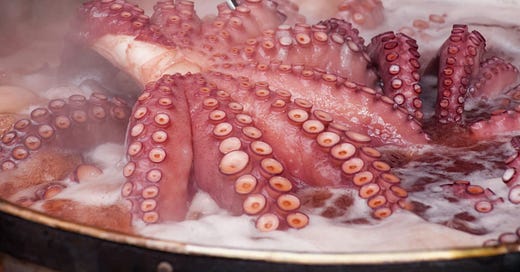


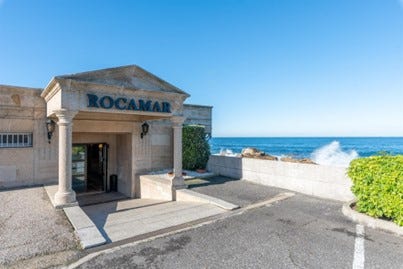
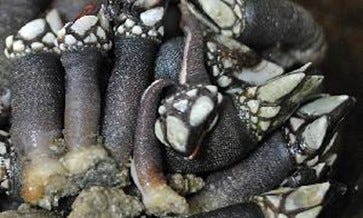
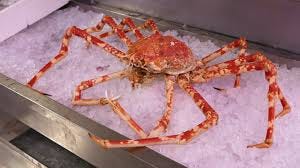
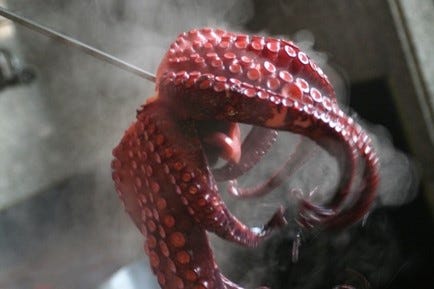

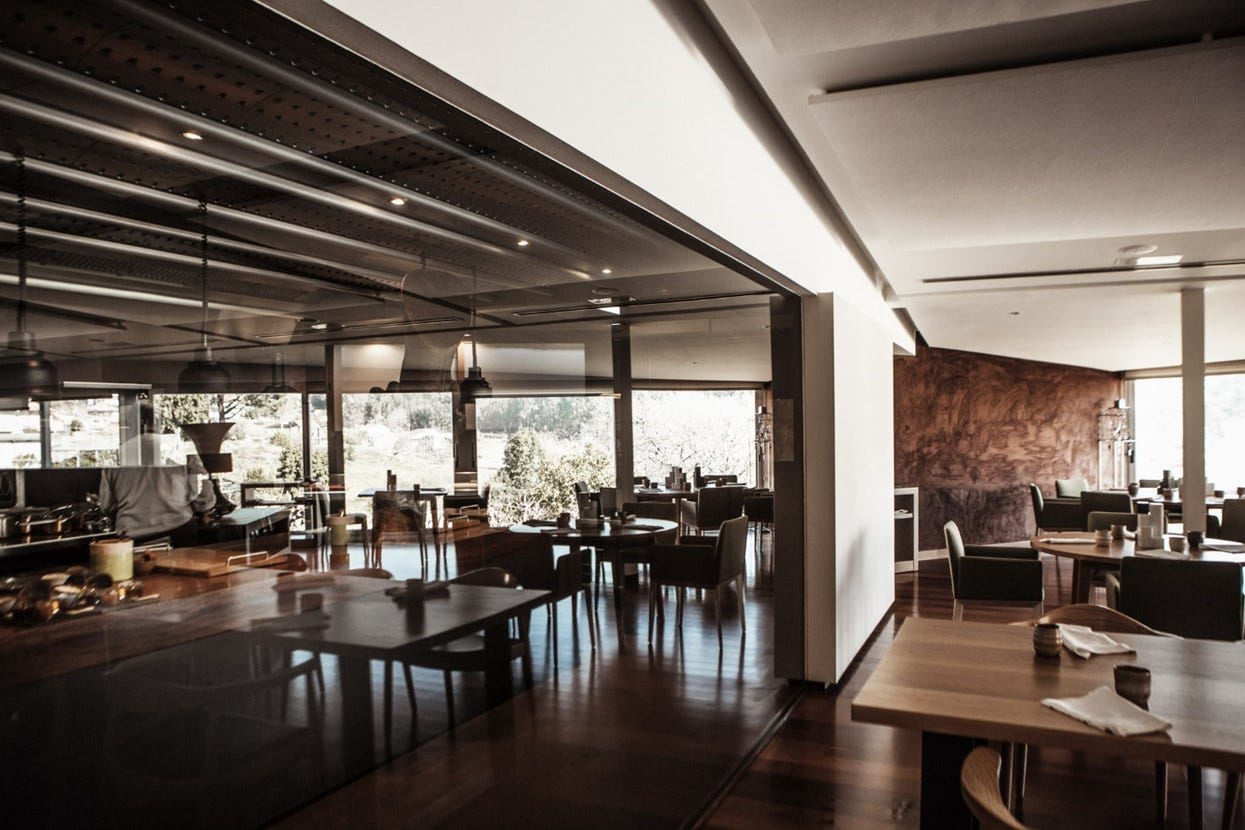


You had me at the Lobster! For my 12th birthday, my parents offered to take me to any restaurant I wanted without my 4 siblings. In a Plymouth Valiant Signet convertible with the top down, we drove to Yesteryear, a restaurant on the river. I ordered lobster. I've loved it ever since. Thank you for the great posts which are always hugely satisfying.
A fun, appetite-whetting post. Reminds me of our first pulpo a la Gallega at a roadside gas station out of Santiago de Compostela hace mucho tempo. I'm going to make it soon. Thanks Jeremiah, David and Heather.